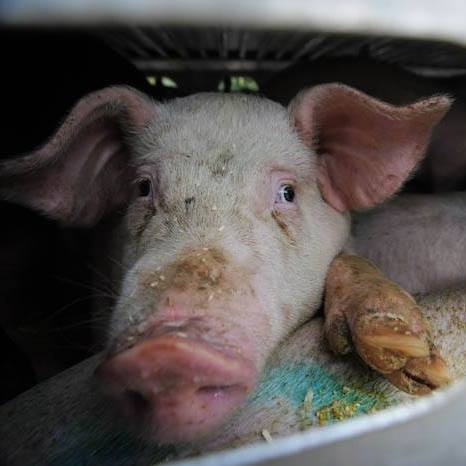Appeared with: Harnad, S. (2007). Spare Me the Complements: An Immoderate Proposal for Eliminating the” We/They” Category Boundary. In Social Brain Matters. Stances on the Neurobiology of Social Cognition. Éditions Rodopi, Amsterdam/New York.
Evan had always been aloof, cerebral. He was forever creating theoretical systems — not practical ones that one could build and use, but completely abstract ones, usually social and ethical ones, that one could only contemplate hypothetically. They were “abstract inventions,” such as a “tit-for-tat society” in which people were forced to behave in accordance with the golden rule because whatever they did to others was literally done back to them in return — not in some remote afterlife, but almost immediately. Or a communicative system that would teach everyone to express their every thought clearly, because no one could do anything for themselves: Every wish — even to go to the toilet — had to be effected through “Chinese whispers,” in which the wisher tells it to someone else, who then goes away and tells it to someone else, and so on, through chains of a minimum length of 6, before the wisher’s wish is implemented — IF it has been expressed clearly enough to survive transmission through this chain.
“Why are you so preoccupied with people in theory, Evan? Real people are all around you and you hardly seem to notice them as you build your utopian castles.”
And it is true, that although he was not unattractive, either physically or mentally — people liked to listen to his thought experiments, and he was not at all overbearing about them: they had to be elicited from him, and the telling was invariably impassioned but brief — he tended to keep his own counsel. He had the morphology of a red-haired person — but without the red hair or white skin or freckles, only the poor eye-sight. Yet when he removed his thick lenses, his ash-gray eyes, which always appeared shrunken behind the lenses, magnified and took on the dreamy and distant look that was so characteristic of his abstractions. So people — older women especially — wished, sometimes silently, often aloud, that he were not so aloof and cerebral, that he would forget a little about his “systems” and look at them, look into their eyes, feel something. They all felt that they could teach him how to feel, if only…
If only what? What element was missing, actually? Did they think Evan was deliberately holding himself back from something? That he was arrogant or snobbish or disdainful? Not at all. It was obvious that he was far too lost in his abstractions to feel such earthly pettiness. Was he afraid then, embarrassed, shy? Some felt that was closer to the truth (it was easy to make him turn red and lose his train of thought: sometimes it would be something someone else said, sometimes it would be something that he himself had said or thought). In those moments of confusion he would appear lost, not sure whether to continue with what he had been saying, or to apologize, or to give up. Certain kinds of mild, external criticism had the same effect on him, but because most of his interlocutors were sympathetic, they quickly learned not to say things to hurt his feelings in that way.
So his aloofness was not lack of feelings, and it was not pride. Was it just obsession then? Was “aloofness” the right word to describe it at all? We don’t (to pick an overdramatic example) say that a schizophrenic is “aloof” or “cerebral” when he is listening to his inner voices. Then why should Evan be so described when he is building or describing his inner systems?
Yet it remained a fact that very few felt they could get close to him. His mother, Freda, was very much like him, though less single-mindedly so. She had managed to raise three children, after all. The two older sisters were not at all aloof, on the contrary. And Freda’s devotion to Evan’s father, Theodor — often bed-ridden and on a dialysis machine since almost the day they had met as newly graduated law clerks, both clerking for the American Civil Liberties Union in Brooklyn — could hardly be described by anyone as aloof. But she too had her moments of abstraction and revery. Perhaps the ACLU was an outgrowth of one of them; and linking her fate with a brilliant but much older man — suffering from a still older-man’s kidney ailment — was another. Theodor had been very uncommunicative about his family and his past, but inspired on any other topic. Rumor had it that he had lived abroad and had done something either heroic or disreputable.
So Evan was close to his mother. And to his father too, although the increasing uremia across the years, as the kidneys failed and transplants did not succeed in reversing the process, made Theodor’s side of the intense bedside conversations he had been having with his son ever since Evan had been old enough to speak, or rather listen, more and more incoherent. Theodor was repeating himself more and more, and making less and less sense. Evan still sat by his bedside (he still lived at home), listening more than speaking, just as he always had; but often the silence would be two-sided now, with Evan lost in a system he was contemplating, and Theodor lost wherever high BNU levels transport you.
The girls were long married, having hastened out of what they found to be the less and less hospitable — because more and more hospital-like — atmosphere of the household, as the dialyses increased from monthly, to weekly, to daily, and the abstractions of their mother and brother grew ever more remote, even as those of their father grew less and less rational.
Some thought it was this medical/mentational atmosphere that kept Evan distant. Freida (not his mother, but a fellow-student, a few years ahead of him, whom Evan had met during his law school studies) thought it was something else. She thought that Evan’s abstractions were not all destined to remain mere distractions. Evan could no more practise law than his father had been able to do so. Theodor, home-bound, had earned money for as long as he could as a free-lance accountant, and Evan now worked for one of his father’s former clients as a full-time chartered accountant. The only one of them who had ever practised law was Freda, and that was only until she had her first daughter; then she typed theses from home until word-processors put her out of business.
Freida, soon seconded by Freda, became increasingly convinced that some of Evan’s ideas were implementable. One in particular, that Evan had told her about early in their relationship (Evan and Freida had become lovers) was something he called “aggregates-in-flux.” It was to be a new way of rearing children, inspired partly by the Kibbutz experiments in Israel, partly by Evan’s ruminations when he had studied divorce and child custody law, and partly by some things he had read about newborn ducklings and Temple rhesus monkeys. His idea was that human selfishness and favoritism — and ultimately racism and xenophobia — all originated from early imprinting: We become attached to our family members, and then we want to favor them, invariably at the expense of others, who are not family members. We versus they.
Now the Kibbutz had tried to enlarge this “we”, but that was all: A bigger we against they. What was needed was a child-rearing system that would never allow the boundary to be formed separating the “we” from the “they.” Children — all children, so there would be no stigma or sense of loss — would be reared in different families, on a monthly, weekly, or even a daily cycle, if necessary. This way, the only thing they could “imprint” on was what was invariant in all that flux, namely, that these were all human beings.
When Evan told this system to outsiders, they were shocked. “It would be like putting everyone in foster care! And we all know how damaging that is to the foster children.” “It would be fascistic to take children away from their parents and force them to be reared by constantly changing strangers.” Evan had always dropped the topic when people said such things, not because he didn’t believe in the idea or could not think of a reply to the objections, but because he always found these expressions of disapproval distressing.
But Freida did not disapprove; and after a while, neither did Freda. So this particular system was nurtured more than the others. They worked out more of its ramifications: How could such a system be implemented? And what would be its long-term effects on society? They concluded that it could only be done in a closed system: In other words, an entire society, out of touch with any other society, must do it, so there would be no contrast cases that could give birth to a we/they boundary, or any sense of stigma, deprivation or abnormality. And their prediction was that these children would grow up into an altruistic society, where everything would be shared and no one preferred, rather the way the socialists had hoped a mere change in political system could bring about. No, human nature had to be modified, not genetically, by rearranging our selfish genes, not through behavioral engineering, by rescheduling our rewards and punishments, but by reshaping our brains through universal early experience.
Then an unusual series of things happened. It cannot be said that Freida had the genius to implement this system. It was chance that had thrown her together with a population of disaffected ACLU lawyers and clerks. She singled out a subset of them who were childless, unmarried, and not in especially committed relationships. That was not difficult, because it was the time when “free love” was one of the slogans of the day. But these were not disaffected, drugged free-lovers. These were social activists, and they had like-minded friends, who had like-minded friends. Freida conducted seminars and expounded Evan’s scheme to this growing circle, some of them coming from quite prosperous families. Before long, they felt they had reached critical mass, and were ready to establish a colony that would implement the “aggregates-in-flux.”
Funds were pooled and negotiations were conducted with a slightly dotty English Lord who owned an offshore island near Scotland that had legal independent-nation status. The Lord had not had much of an agenda for his little country. He had populated it with his own household servants and hangers-on, but he owned many other properties and was prepared to decamp in favour of this Utopian experiment that went far beyond his expectations for his country (and far beyond his capacity to understand abstractions). So he gave them, for free, a lease-hold for 100 years for the Republic of Huma, as they decided to call it.
The population of Huma, mostly American, but with recruits from many other countries too, mostly intellectuals, but with a reasonable blend of subsistence skills from the Greens among them, was “seeded” with approximately 10,000 individuals, childless and of breeding age, around 50% male and 50% female, with all agreeing that, just as their progeny would be raised in constant flux, their matings and pairings would be in constant flux too. Among them were Freida and Evan. Like all the others, they had bidden their families farewell, explaining that their experiment depended critically on making sure that Huma was a closed system, with no outside influences.
But that was just the beginning of the unusual series of events. Against all odds, the implementation proved successful. The 10,000 members of the founder population had been well chosen. By temperament and ideology, and even by their previous practises, they were very well attuned to this new system. They were comfortable with constantly changing partners, they were ready to give up their own biological offspring, and even any knowledge or trace of the connection (10,000 was large enough so a newborn baby, already passed to someone other than the birth-mother for nursing at birth, would be assimilated into its Human peer cohort with no way to link it to its birth mother). And, in those pre-Digital days, no one tried to trace the connection, because no one minded, neither the parents, nor the children, as they were raised in their aggregates-in-flux and growing into exactly the kind of humane humanists that Evan had predicted they would become.
But what became of Evan and Freida? Soon after they arrived, like everyone else, they were to split up and form other bonds, and they did. Or rather they tried. And Freida succeeded. It was not forbidden to contact prior partners, the way it was forbidden to pursue links with biological offspring, but it was discouraged. The assumption was that 10,000 was a large enough founding population to minimize lifetime recouplings if the average coupling duration was of the order of a few months, weeks, or even days. So Evan and Freida ran across one another now and again, but when Evan proposed their third recoupling, Freida said she didn’t think it would be a good idea.
Evan did not protest; he complied with the dictates of the Human system, but for some reason he was not as successful as everyone else. He found that when he chose, or was chosen by, or assigned to, new partners, he kept thinking of Freida. He lost sexual interest in new partners very fast, sometimes before there had been any sexual contact at all. And he lost interest in other things as well. He assumed that among the growing ranks of Human youngsters were some children of his own, too. He obsessively scrutinized children he encountered to see whether he could detect any family resemblance — and he sometimes thought he could — but those children would just look at him with the same bland, friendly look as all the other children, so he gave up.
Against accepted practice, he kept recontacting Freida. He surprised her by asking her whether she was having any of these feelings he was having (thinking of her, thinking of his parents, wondering about his children). She was surprised, because he had never seemed interested in such matters before, even in the pre-Human days. But she replied, honestly, no, she was not having problems of that kind. She was thinking more about how, now that the experiment had proved so successful, they could spread it to the rest of the world. She suggested that Evan, as the originator of the theory, might now turn his abstract capacities to that task; maybe it would get his mind off these other discomforts he seemed to be feeling.
But Evan was pained by her distance, and by the fact that she did not feel what he felt, but was instead preoccupied with enlarging an experiment that he felt had failed, at least for him. Although it was also contrary to the culture of the Human system, where inhabitants tended to detach themselves from their accomplishments in the same way they detached themselves from their partners and their progeny, Freida proposed informing some, or even all, of the Humans that Evan was the one who had created their system. Perhaps that would raise Evan’s spirits and get him recommitted to his brainchild. Evan acquiesced, but only to please Freida. His own hopes were fixed more on Freida’s feelings for him than on any social acclaim for his contribution.
When the Aggregate-Counsel was convened, to which Evan was to be presented as the Founder, Evan found himself feeling worse and worse. He felt he did not understand these Humans. They seemed so distant from him and from one another, so aloof, so cerebral.
He contemplated leaving Huma, but all he really wanted was Freida, and he knew that if nothing could bring her closer, his leaving could certainly only drive her further. He tried to think of an abstract solution, but abstraction failed him, and he found he could not even recall what had been system-building’s obsessive appeal for all those years. Everything he called to mind seemed meaningless, empty, hopeless.
Huma had some medical facilities. After his breakdown following the Counsel, Freida arranged for him to be checked in for some psychiatric help. They did a routine blood test and found he had very elevated levels of BNU. The x-rays showed that one kidney had already failed and the other was enlarged and near collapse. There was no dialysis unit on Huma, so he was shipped to mainland UK and hospitalized in the Chalybeate hospital. When his two sisters flew to see him, they found that his conversation had already become incoherent.




